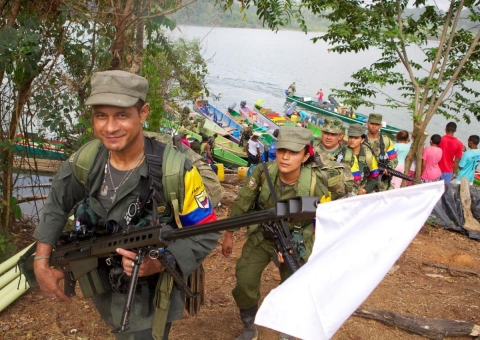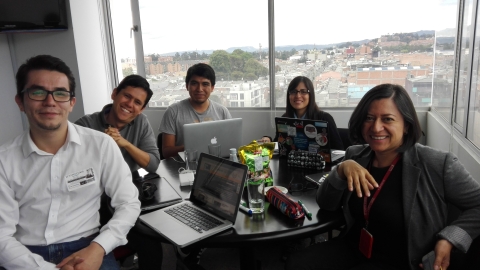
As Colombia works to secure a lasting peace after decades of conflict, a team of pioneering journalists are rigorously tracking the country’s progress using a powerful tool: data journalism.
Led by ICFJ Knight Fellow Fabiola Torres Lopez, the team behind “La Paz en el Terreno” (“Peace in the Field”) has built two databases focused on key indicators of peace.
Seeking to go beyond anecdotes and official statements, the journalists are tracking data on the killings of community leaders murdered since the 2016 peace accord, and the reintegration into society of former fighters with the Revolutionary Armed Forces of Colombia (FARC).
The project - a collaboration between Rutas del Conflicto and El Espectador’s Colombia 2020 team - aims to provide citizens with critical, verified information that is largely absent from the news coverage. “We wanted to create a tool to track the most important themes emerging from the implementation of Colombia’s peace process,” said Gloria Castrillón Pulido, Colombia 2020 editorial director.
Reporters with “La Paz en El Terreno” have documented more than 110 community leaders killed since the accord was signed. Meanwhile, efforts to reintegrate former fighters are mixed. With the Colombian presidential election approaching and misinformation circulating on social media, “we think it’s important to verify this data about the reincorporation process,” said Rutas del Conflicto Director Oscar Parra.
FARC leaders and the Colombian government signed a peace agreement in September 2016. It failed to win support from a majority of voters in a referendum and continues to be a polarizing force in Colombian politics.

Many elections, including this year’s parliamentary and presidential contests, have become competitions between the agreement’s defenders and opponents.
“At this crucial moment, it's important to provide complete -- and fully verified -- data to citizens about their country’s peace process,” said Torres, who also helped the project’s media partners use new digital tools in their storytelling.
The project features profiles of 90 community leaders and activists who were murdered between September 2016 and December 2017. Reporting provides context and analysis of the trends in this data. Readers can submit previously unrecorded homicides using the “La Paz en el Terreno” platform, and reporters from the project will investigate these cases.
“In Colombia, there was no master list about the crimes against community leaders and human rights advocates,” Torres said. “The La Paz en el Terreno team compared all these datasets to create one complete registry and verified all its data with documents as well as interviews with the authorities and victims’ families.”
Colombia2020 and Rutas del Conflicto publicly launched this project last month at a major event in Bogota, Colombia. The event featured speakers from the National Council for FARC Reincorporation, the elite force of the Colombian National Police, the Colombian High Peace Commission among other groups. The team plans to produce more stories for “La Paz en el Terreno” in the coming months.
Watch Torres’ video announcing the project at the Bogota event: